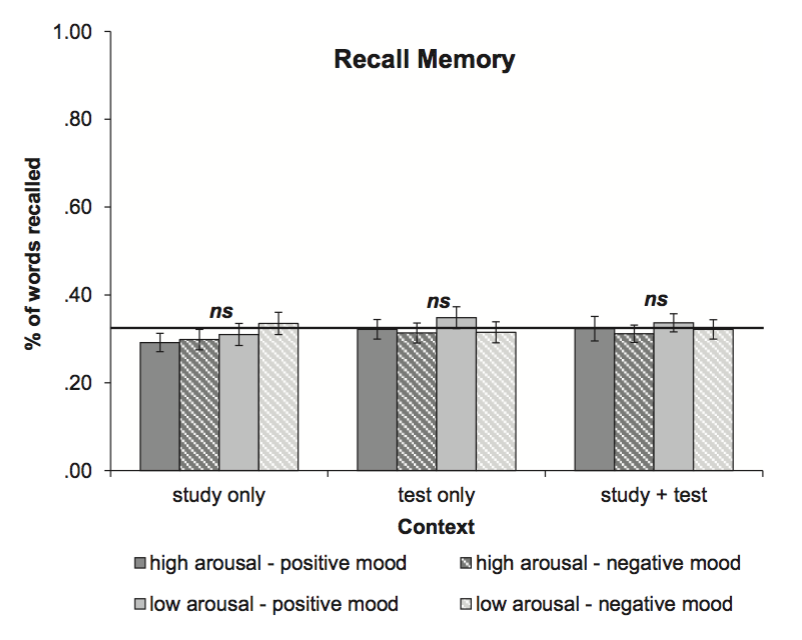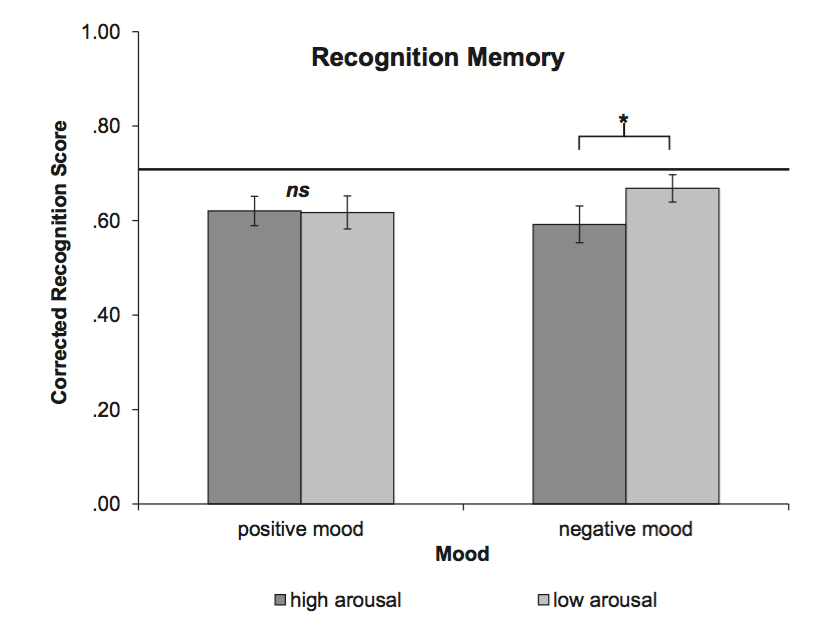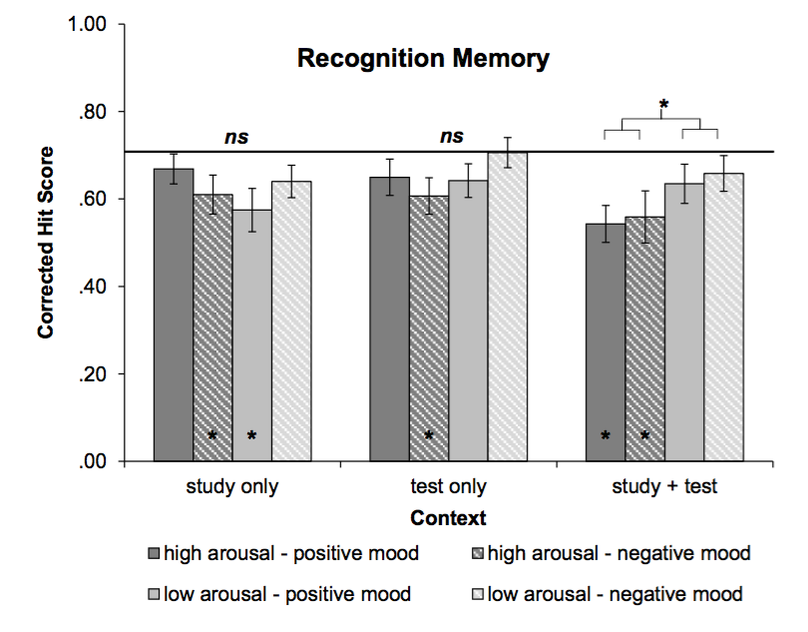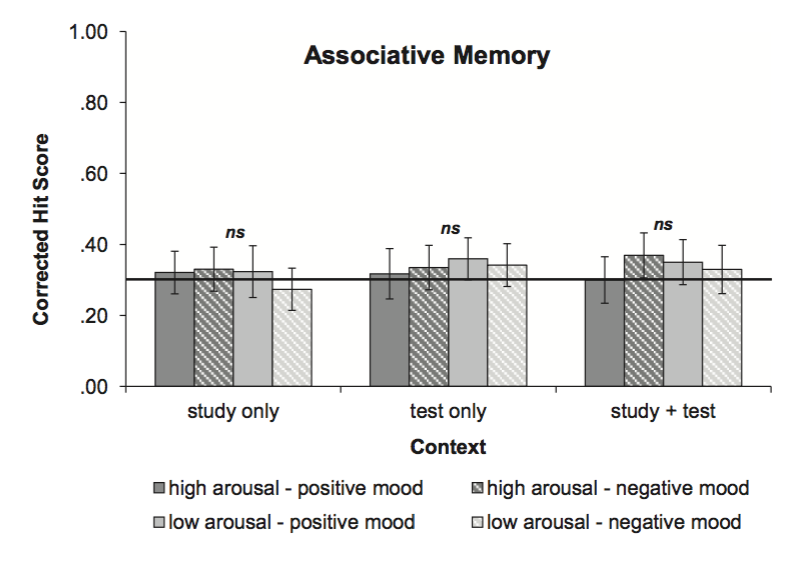Mind Your Music: The Effects of Music-Induced Mood and Arousal Across Different Memory Tasks
In this study, we studied how background music affects verbal memory performance.
Click here to read the full paper.
Click here to read the full paper.
Two key theories explain why music may aid memory:
Arousal Mood Hypothesis - Background music may affect memory by altering the listener’s mood (i.e.; happy or sad) and arousal states (i.e.; high or low intensity). This theory postulates that optimal memory performance occurs when you are in a happy mood with not too little or too much arousal.
The Encoding Specificity Principle – Background music may affect memory if the same music presented during studying is reinstated during testing. This theory postulates that optimal memory performance occurs when the conditions are similar at study and test.
Arousal Mood Hypothesis - Background music may affect memory by altering the listener’s mood (i.e.; happy or sad) and arousal states (i.e.; high or low intensity). This theory postulates that optimal memory performance occurs when you are in a happy mood with not too little or too much arousal.
The Encoding Specificity Principle – Background music may affect memory if the same music presented during studying is reinstated during testing. This theory postulates that optimal memory performance occurs when the conditions are similar at study and test.
The Music
Music was chosen to vary in arousal (high, low) and mood (positive, negative).
Three songs were chosen for each condition, below is an example of each.
High arousal positive – Ghost N Stuff
High arousal negative – Tempting Time
Low arousal positive – Hello My Lovely
Low arousal negative – Prelude in E Minor
Context was also manipulated by playing each condition at time of study only, test only, and at study and test.
Three songs were chosen for each condition, below is an example of each.
High arousal positive – Ghost N Stuff
High arousal negative – Tempting Time
Low arousal positive – Hello My Lovely
Low arousal negative – Prelude in E Minor
Context was also manipulated by playing each condition at time of study only, test only, and at study and test.
The Memory Tasks
- Recall Task – participants presented a word list to study, during test phase had to remember and type out as many of the words from the list.
- Recognition Task – participants presented with a word list to study, during test phase presented words from list and new words participants had to decide if a word had been in the study list.
- Associative Memory Task – participants presented with word pairs to study, during test phase presented with learned pairs and new pairs had to decide which combination of pairs had been in the study list.
The Results
Recall MemoryWhen the data are collapsed across mood and context, participants recalled more words correctly with low arousal music compared with high arousal music.
The solid black line represents performance in the silent condition, when no music was listened to during studying and testing. Recall performance in each of the 12 conditions was not significantly different from that during silence. Error bars indicate standard error of the mean. |
Recognition Memory
|
Participants performed significantly better at the recognition task when listening to low arousal negative mood music compared to high arousal negative mood music, but there was no significant difference between low arousal positive music and high arousal positive music.
The solid black line represents performance in the silent condition. Error bars indicate standard error of the mean. p <.05. |
Participants performed better when listening to low arousal music, but only when played at both study and test. The solid black line represents performance in the silent condition. Asterisks at the base of the bars indicate conditions in which performance significantly differed from silence. Error bars indicate standard error of the mean. p <.05.
|
Associative Memory
Conclusion
Although many studies have reported significant effects of mood, arousal, and context, as well as significant mood and arousal interactions on memory, other studies have reported no effects or a different pattern or trend of effects. It is evident from our study that the effects of background music on verbal memory are variable and may not generalize across different memory tasks. In summary further studies will be needed to fully understand the the interaction between music and memory.



